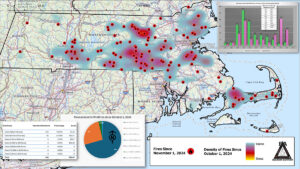L-S music fundraiser at Wayside Pizza
Wayside Pizza (730 Boston Post Rd., Sudbury) will donate a portion of its sales on Tuesday, Nov. 19 to the L-S Music Program Spring NYC Tour fundraiser. Mention L-S MUSIC when you order or in the comments section of your on-line order at checkout.
Giving Thanks story time
On Wednesday, Nov. 20 at 1 p.m. at Codman Community Farms, Lincoln Public Librarian Debbie will share some of her favorite books and songs that celebrate the fall season, friendship, and being thankful. Best for ages 5 and under but all are welcome. Click here to sign up.
“Mamma Mia!” to be performed at L-S
Tickets are now on sale for the LSB Players’ production of “Mamma Mia!” with performances on Wednesday through Saturday, Nov. 20–23 at 7:30 p.m. This exuberant musical, told through the pop hits of ABBA, takes place on the fictional island of Kalokairi in Greece with a brideto-be, her mother, and three men who may or may not be her father. Click here to purchase tickets
Film: “Waking the Dead”
The Lincoln Library Film Society presents “Waking the Dead” (2000, rated R) on Thursday, Nov. 21 at 6 p.m. in the Tarbell Room. When one man’s ‘70s idealism confronts his ‘80s aspirations, he begins an emotional rollercoaster that brings ghosts back to life and the ultimate question: does love conquer all, even death?
“Community Gathering: Making Sense of the Moment”
“Community Gathering: Making Sense of the Moment” with Mothers Out Front is an opportunity for everyone to come together on Saturday, Nov. 23 from 3–4 p.m. in the Lincoln Public Library Tarbell Room as we make sense of the moment after the presidential election. We will talk about what we collectively see as important priorities for our democratic nation. We will consider how we can get involved in upholding democratic values that support all peoples. We may not have all the answers, but we will come with curiosity, open-mindedness, and respect as we learn from one another.









